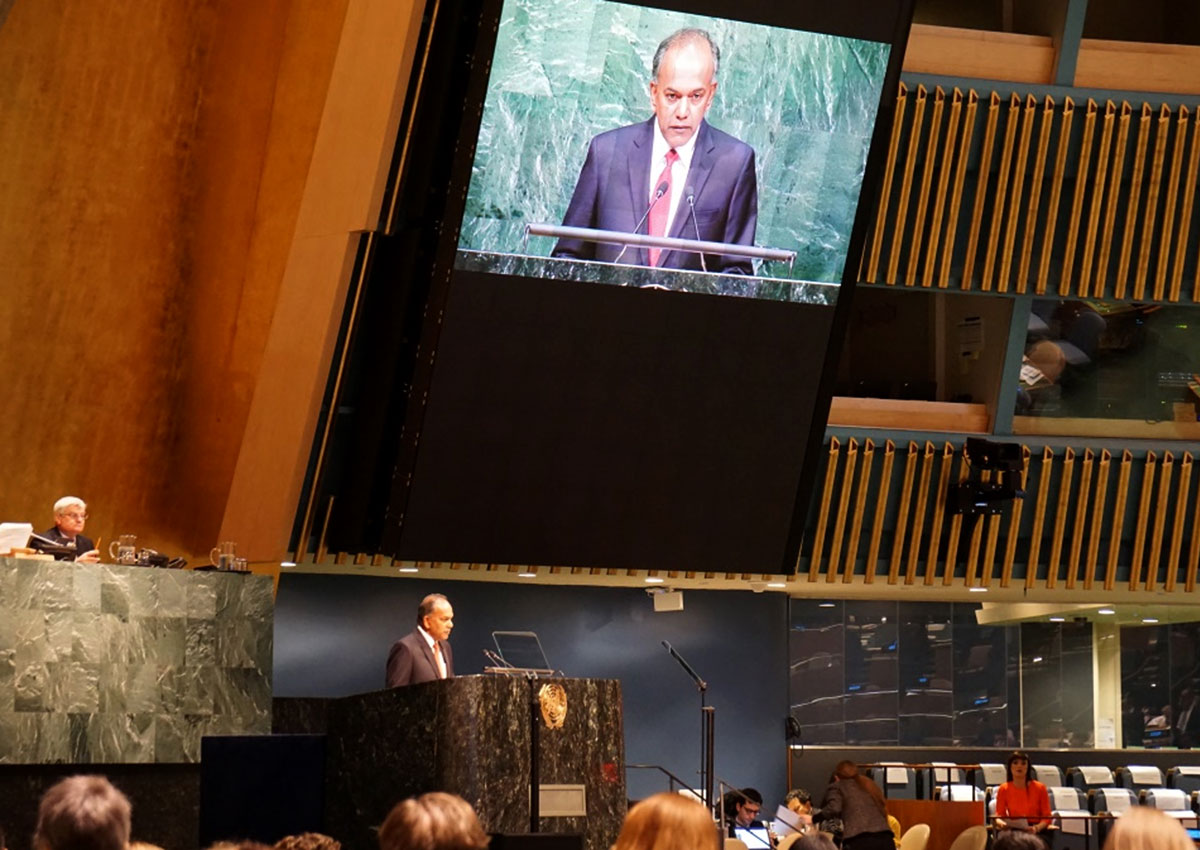Speaking at the UN General Assembly in New York on Wednesday, he said he was unmoved by the rhetoric he had heard at the meeting.
Singapore will not soften its drug policies, Minister for Home Affairs and Law K. Shanmugam has said at a United Nations meeting, pushing back against calls for a shift in approach to the global war on drugs.
Mr Shanmugam did not mince words in his speech at the UN General Assembly in New York on Wednesday, as he issued a strong rebuttal to countries pushing for a less hardline approach.
He said he was unmoved by the rhetoric he heard at the meeting and would only review Singapore’s stance if there was evidence that a different model would work better to create the outcomes the Republic was able to achieve.
“I am prepared to compare our experiences with any city that you choose. Show us a model that works better, that delivers a better outcome for citizens, and we will consider changing. If that cannot be done, then don’t ask us to change,” he said.
Mr Shanmugam’s remarks highlighted a clear rift in opinion at the meeting on whether countries should continue to take a hard line on drugs or switch to an approach known as harm reduction.
Under harm reduction, a drug-free world is deemed impossible, so policies are designed to minimise the harms associated with drug use. That includes providing clean needles for drug abusers and safe, supervised injection sites.
The UN meeting – the first since 1988 to focus on the drug issue – was the result of lobbying by Mexico, Guatemala and Colombia. They want an end to the global war on drugs that they say is a source of much violence in their nations, and a “humane solution” that does not just focus on law enforcement.
But Mr Shanmugam rejected the dichotomy between human rights and oppression, stressing there was a middle road between “treating them as criminals, and feeding them with drugs”.
“It is possible to work with drug abusers to rehabilitate them. This is difficult and resource-intensive. But because every life is important, we do that. Legalising and giving abusers drugs is the easier option. But not the better one,” he said.
His speech received applause from the delegates in the hall but it is clear that there is little agreement on the best way to address the issue.
A day earlier, the Indonesian delegate to the meeting was booed when he defended the use of the death penalty to deter drug crimes.
Many Latin American and European countries lamented the resolution adopted at the start of the meeting, which outlined various steps countries should take to tackle the drug problem, for not shifting the approach enough. Countries such as China and Russia had prevented the words “harm reduction” and any reference to the death penalty from being included.
Mr Shanmugam on Wednesday noted the need for a global consensus on how to move forward on the problem but also said this needed to allow for every country to pick the approach that works best.
“For us, the choice is clear. We want a drug-free Singapore, not a drug-tolerant Singapore,” he said.
jeremyau@sph.com.sg

This article was first published on April 22, 2016.
Get a copy of The Straits Times or go to straitstimes.com for more stories.









































